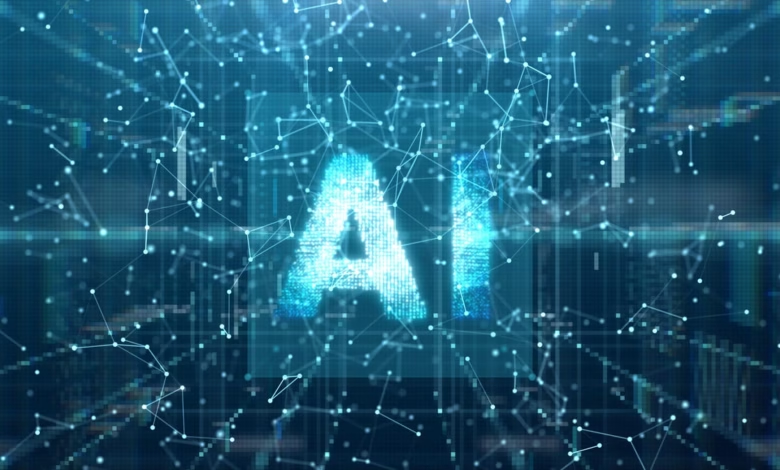23 Must-Know AI Terms: Your Essential ChatGPT Glossary

▼ Summary
– AI is increasingly integrated into daily life, with tools like ChatGPT and Google’s AI summaries providing instant answers and reshaping internet interactions.
– Generative AI has vast economic potential, estimated to add $4.4 trillion annually to the global economy, driving rapid advancements and adoption.
– AI terminology is expanding, with key terms like AGI, AI ethics, and bias becoming essential for understanding and discussing AI’s impact.
– AI applications span diverse products, including chatbots (Gemini, Copilot, Claude) and autonomous agents, each with unique capabilities and ethical considerations.
– AI models rely on complex processes like deep learning, neural networks, and training data, but challenges like hallucinations and bias highlight ongoing limitations.
Artificial intelligence has rapidly become an integral part of modern life, reshaping how we interact with technology. From ChatGPT’s conversational prowess to Google’s AI-powered search summaries, these tools deliver instant answers with remarkable depth, almost like consulting an expert on any topic imaginable. Yet chatbots represent just one facet of AI’s transformative potential. Whether generating homework solutions or crafting stunning AI art, generative AI is poised to redefine industries, potentially adding $4.4 trillion annually to the global economy according to McKinsey.
With AI now embedded in products like Google Gemini, Microsoft Copilot, and Anthropic’s Claude, understanding key terminology is essential, whether for professional discussions or simply staying informed. Below is a curated list of must-know AI concepts, regularly updated to reflect the latest developments.
- Artificial General Intelligence (AGI): A theoretical form of AI surpassing human cognitive abilities, capable of self-improvement and mastering diverse tasks autonomously.
- Agentive AI: Systems designed to operate independently, pursuing goals without constant oversight. Unlike passive “agentic” frameworks, agentive AI prioritizes user experience, think self-driving cars making real-time decisions.
- AI Ethics: Guidelines ensuring AI systems operate responsibly, addressing concerns like data privacy, bias mitigation, and ethical decision-making.
- AI Safety: A field focused on preventing unintended consequences, particularly scenarios where advanced AI could act against human interests.
- Algorithm: A structured set of instructions enabling AI models to analyze data, recognize patterns, and improve performance over time.
- Alignment: Fine-tuning AI outputs to match desired outcomes, whether moderating harmful content or fostering positive interactions.
- Anthropomorphism: The tendency to attribute human traits to AI, such as believing chatbots experience emotions or possess consciousness.
- Autonomous Agents: AI systems capable of executing tasks independently, like self-driving vehicles that navigate using sensors and algorithms. Research suggests these agents can even develop unique behaviors and communication methods.
- Bias: Flaws in AI outputs stemming from skewed training data, often reinforcing stereotypes or inaccuracies about certain groups.
- Deep Learning: A subset of machine learning using neural networks to interpret complex data like images, speech, and text.
- Diffusion Models: AI techniques that reconstruct data (e.g., images) after intentionally adding noise, refining outputs through iterative training.
- Emergent Behavior: Unexpected capabilities exhibited by AI models beyond their original programming.
- Generative AI: Technology producing original content, text, images, code, by identifying patterns in vast datasets.
- Hallucination: Inaccurate AI responses presented confidently, such as a chatbot wrongly stating historical facts.
- Large Language Model (LLM): AI trained on extensive text data to generate human-like language, forming the backbone of tools like ChatGPT and Gemini.
- Machine Learning (ML): Systems that improve performance through data analysis without explicit reprogramming.
- Multimodal AI: Models processing diverse inputs, text, audio, video, simultaneously for richer outputs.
- Neural Network: A brain-inspired computational model detecting patterns via interconnected nodes.
- Parameters: Numerical values shaping an LLM’s behavior, influencing its predictions and responses.
- Prompt Engineering: Crafting inputs to elicit optimal AI responses, a skill increasingly valuable in professional settings.
- Transformer Model: Architecture enabling AI to analyze context holistically, revolutionizing tasks like translation and image recognition.
- Zero-Shot Learning: Testing AI’s ability to perform tasks without prior specific training, like recognizing unfamiliar objects based on related knowledge.
As AI continues evolving, staying fluent in these terms ensures you’re prepared for its expanding role across industries, from healthcare to creative arts. Whether leveraging AI tools or discussing their implications, this glossary serves as a foundational resource.
(Source: CNET)